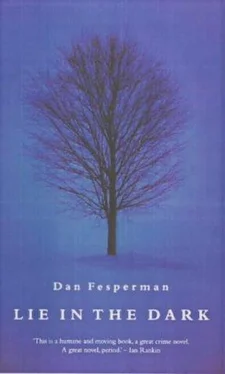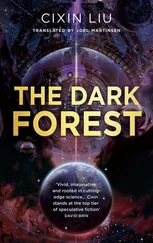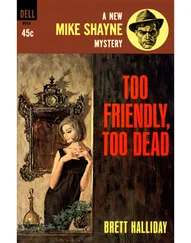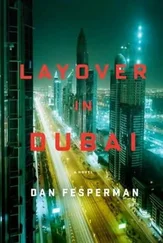Dan Fesperman - Lie in the Dark
Здесь есть возможность читать онлайн «Dan Fesperman - Lie in the Dark» весь текст электронной книги совершенно бесплатно (целиком полную версию без сокращений). В некоторых случаях можно слушать аудио, скачать через торрент в формате fb2 и присутствует краткое содержание. Жанр: Триллер, на английском языке. Описание произведения, (предисловие) а так же отзывы посетителей доступны на портале библиотеки ЛибКат.
- Название:Lie in the Dark
- Автор:
- Жанр:
- Год:неизвестен
- ISBN:нет данных
- Рейтинг книги:3 / 5. Голосов: 1
-
Избранное:Добавить в избранное
- Отзывы:
-
Ваша оценка:
- 60
- 1
- 2
- 3
- 4
- 5
Lie in the Dark: краткое содержание, описание и аннотация
Предлагаем к чтению аннотацию, описание, краткое содержание или предисловие (зависит от того, что написал сам автор книги «Lie in the Dark»). Если вы не нашли необходимую информацию о книге — напишите в комментариях, мы постараемся отыскать её.
Lie in the Dark — читать онлайн бесплатно полную книгу (весь текст) целиком
Ниже представлен текст книги, разбитый по страницам. Система сохранения места последней прочитанной страницы, позволяет с удобством читать онлайн бесплатно книгу «Lie in the Dark», без необходимости каждый раз заново искать на чём Вы остановились. Поставьте закладку, и сможете в любой момент перейти на страницу, на которой закончили чтение.
Интервал:
Закладка:
“After awhile we even discovered a nice side effect of the practice, apart from our own enrichment of course. We found we were creating room for our own new artists. Most museums will send items off into storage to do that. We, on the other hand, were able to keep our patrons happy by putting art in their homes while also giving our brighter young artists someplace to hang their work. The irony is that as some of them became popular, a few pieces of their work ended up being ‘loaned out’ as well. So, you see, art begets art as it moves and shifts.”
“It sounds like a lot of volume you’re talking about.”
“By the late eighties, close to a thousand pieces, I’d say. And as each piece moved somewhere it became a part of my domain. We’d take the card out of the central file, place a red circle in the upper corner of its inventory card, next to my signature, and place it in the transfer file. And even though I was still based here, Belgrade never did get control of it. I think partly because no one really wanted to fool with it once it became too big and unwieldy. Once Pencic died I was the last one left who could really trace the whole thing back to its beginnings. So, I was curator of the world’s most scattered collection. The shepherd, if you will, of all our country’s wandering lambs.”
“Didn’t anyone ever get a little concerned about all this? Having so many pieces-what, more than a thousand, you said? – all over the place like that.”
“What was there to be concerned about? A thousand is a drop in the bucket compared to the national inventory. And it had all happened too gradually to alarm anyone. And let’s face it, Mr. Petric, how many people except for a few bent old eccentrics really know enough about a museum’s inventory to notice if a piece here and there has been removed. So, anyhow, everything progressed smoothly, my empire growing all the while.
“Then the war began brewing. A vague sort of edginess crept in. I slowed down the movement, put a halt to it, in fact. Because if anything we wanted to start putting some of our better museum pieces in more secure locations. Bank vaults, that sort of place. So we shifted our energies. And it was at about this time that I got a visit-here, not at the office-from a most unusual patron, more so even than you or Mr. Vitas.”
“And when was this?”
“March of ninety-two. Just before everything went to hell. It was a general, a brigadier in the Yugoslav People’s Army. A General Markovic. He is now somewhere up in the hills near here, I am told. His men shell us every day”
“A Serb, then.”
“Yes, a Serb. And he had suddenly become very interested in the world of art, and in my scattered little collection in particular. In an official capacity, of course. He said he was representing ‘government interests.’ I must say that he wasn’t at all the sort of man you would ever bump into in the galleries of the National Museum.”
“What did he want to know?”
“Everything. He’d had a look at the transfer file already, either that or someone had told him about it, and he knew damn well what the red circles meant. He wanted a rundown of every transfer item in the city, a summary on location-how scattered, how easy to find, how resistant owners might be to ‘protective removal,’ what our recordkeeping was like, what the insurance companies knew. And values, he wanted to know what sort of stuff had the best value. Or, as he put it so disingenuously, which items needed immediate attention if we were to save them from the war, if a war indeed began. Did he ask about technique, about the merits of different schools, the value of a landscape as opposed to, say, some abstraction that might signify something larger, something visionary, some totem or talisman? Hell no. It is like I told you, this man was a businessman.”
“Did he ever bother to explain his interest, other than saying he represented the government?”
“Oh, his motives were all very patriotic, of course. He said that he and his superiors feared war would begin soon, so they wanted to get a handle on this very vulnerable portion of our national artistic heritage-the whereabouts, the values, the scope of it all-so that once things got rough he could make sure it was all protected. He said that people at the very highest levels had expressed their concern and put him in charge of protection.”
“Did you believe him?”
“Would you? This big philistine with garlic and slivovitz on his breath? Not for a moment. Not a word of it. If someone had been interested in protection it would have come through official channels, and there would have been visits to the museum, not to my home. There would have been forms to sign in triplicate, memos to circulate and meetings to hold. It would have been more red tape than you’d care to imagine, and it all would have been bungled very nicely, by all the proper channels, so that the art would have been in exactly the most vulnerable location possible at the time the shooting started.
“The general, on the other hand, was interested only in speed, efficiency, and, if you ask me, stealth. Does that sound like an official government operation to you? No, he was a mercenary, a silk-lined old Bolshevik who only wanted to know more about value and marketability. A capitalist in training looking for his big opportunity, the sort of accident that has been waiting to happen to this country since Tito died.”
“Then what did you tell him?”
Glavas sat up straight in his chair, pulling the blanket around his shoulders.
“Everything I knew. Places, values, estimates on how much he might be able to round up and in what period of time. Whatever he asked tor, really.”
Vlado was momentarily taken aback. He frowned slightly, prompting an impatient sigh from Glavas.
“Why did you help him?” Vlado asked.
“Why not? Why risk this man’s wrath. If I could have a friend in Grbavica with a war coming and the Serbs crouching to spring on the city like a cat, why not. And I am a Serb, Mr. Petric.” He leaned forward again, the blanket slipping. “Not a Serb patriot, or an Orthodox zealot or someone who still laments our glorious losses God knows how many hundreds of years ago on the plains of Kosovo. But still, a Serb, with an identity that I may need someday. That I needed then. And I will not squander the possible value of that identity, Mr. Petric, not for you and not for all the goddamned painted canvas in this city. Tell me, Mr. Petric, under these circumstances, would you? Toss away your security, I mean, by standing up for principle against some philistine in hopes of keeping a few hundred pieces of art from leaving the country?”
“Is that what you think has happened? That this art has left the country.”
“Has left or is leaving, take your pick. How else would you be able to profit from it. By selling it at the Markale Market, next to the potatoes and the plumbing joints? Prop it up on a card table with the insurance appraisal tacked to the frame? Use your head, Mr. Petric. Art may survive in a war zone, but the art ‘community’ that is supposed to protect it usually scampers away on the cowardly feet of foxes. A few diehards always stay to try to hold the old order together, or to try to ‘protect our heritage,’ as they put it. But the others get out while they can, using every connection available to them, leaving the rest of us to get ourselves killed. Like your friend Mr. Vitas.”
“Is this what Vitas thought as well, that art was leaving the country?”
“He suspected it strongly even before he arrived here, I believe, and once I told him of my chat with the good General Markovic he seemed quite sure of it. Or so I gathered from his questions.”
“What sort of questions?”
“He wanted to know about the current supply, about what might still be in the city from the transfer file. About what might have been moved since the beginning of the war, who had been in charge of moving it, who had been in charge of protecting it, if anyone. And who had been in charge of the records, or had access to them, besides myself. He asked if anyone had been in touch with the insurers, or if anyone from the U.N. had shown an interest. And he wanted to know what sort of market there might be for these items, assuming one could indeed get them out of the city, out of the country. In fact, he wanted to know very many of the same things as General Markovic, except he was obviously a few years behind.”
Читать дальшеИнтервал:
Закладка:
Похожие книги на «Lie in the Dark»
Представляем Вашему вниманию похожие книги на «Lie in the Dark» списком для выбора. Мы отобрали схожую по названию и смыслу литературу в надежде предоставить читателям больше вариантов отыскать новые, интересные, ещё непрочитанные произведения.
Обсуждение, отзывы о книге «Lie in the Dark» и просто собственные мнения читателей. Оставьте ваши комментарии, напишите, что Вы думаете о произведении, его смысле или главных героях. Укажите что конкретно понравилось, а что нет, и почему Вы так считаете.












